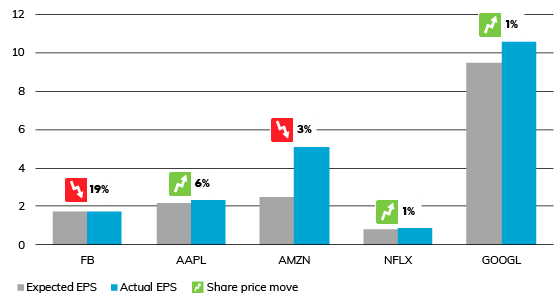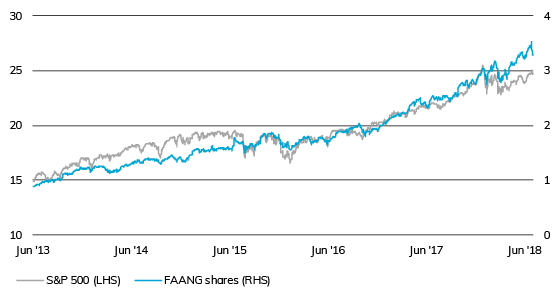In the wake of Facebook’s plummeting share price, there has been much talk of the so-called FAANG shares and their earnings performance. But investors should not be misled by the market’s bucket mentality, which has a tendency to group together certain stocks, often for superficial reasons.
The recent round of earnings announcements shows that the five FAANG shares—Facebook, Apple, Amazon, Netflix and Google (which trades as Alphabet)—are hitting or exceeding their earnings per share (EPS) estimates, but have experienced wildly divergent share price reactions.
FAANG earnings per share (EPS) and share price reactions

Source: Lonsec, Bloomberg, company reports
While the FAANG shares have largely risen together in recent months, Facebook’s violent decoupling from the FAANG growth trajectory shows it is a mistake to think of these shares as behaving as a group. While Facebook met the market’s EPS target, it undershot the consensus revenue estimate and suffered the consequences.
In contrast, Amazon reported strong EPS growth and slightly down-beat revenue versus consensus, leading to only a moderate fall in price. Netflix reported lower than expected revenue and subscriber growth and saw a small bump in its price.
While the FAANG shares may have much in common—they are all technology-related shares—they are fundamentally different businesses. What they have most in common is that they are, with the exception of Netflix, among the highest value shares in the index. When they move in the same direction they can move the market with them, but when they diverge it can leave investors wondering how meaningful the FAANG label is.
FAANG market cap (US $trillion)

Source: Lonsec, Bloomberg
Release ends
